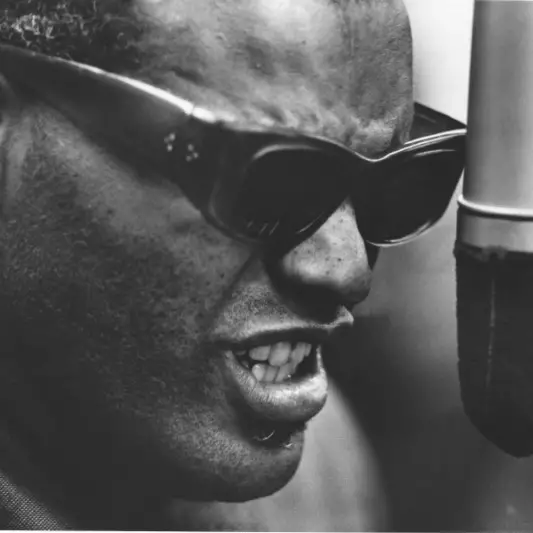Ray Charles changed the way the world perceived country music. Charles’ own Tangerine Records is proud to announce five newly remastered albums – four classic titles, and a new entry into the Ray Charles canon – that remind us of his influence in breaking down musical and genre boundaries with these seminal works.
Listeners can hear the roots of today’s country renaissance in these timeless recordings, beginning with the game-changing 1962 albums Modern Sounds In Country And Western Music and Modern Sounds In Country And Western Music Vol. 2, both available this Friday, September 27. These will be followed by 1965’s Country & Western Meets Rhythm & Blues and 1966’s Crying Time on October 18, marking the first time these two rare albums will be available on vinyl since their original pressing. On November 15, a new compilation album titled Best of Country & Western will be released, featuring highlights from across Charles’ country music recordings. All will be available on vinyl, CD and all streaming platforms.
This series showcases Charles’ unparalleled interpretations of country classics and serves as a timely reminder of his role as a cultural pioneer who helped bridge racial divides through the universal language of music.
Originally released in 1962, the groundbreaking Modern Sounds In Country And Western Music changed the course of popular music and led Willie Nelson to remark, “Ray Charles did more for country music than any other artist.” It quickly became the best-selling of all country albums. This first installment spawned four hit singles, including the #1 Billboard Hot 100 smash “I Can’t Stop Loving You,” which won Best Rhythm & Blues Recording at the fifth annual GRAMMY Awards. Charles remains the first and only artist to earn a GRAMMY Award and a #1 Billboard pop chart hit with a country song. Volume 2 followed its predecessor that same year and received similar critical acclaim and commercial success, featuring three hit singles including the classic, “You Are My Sunshine.”
The success of the Modern Sounds in Country and Western Music albums paved the way for Charles’ creative freedom as an artist. In 1965, he continued to show his deep affinity for country music with Country & Western Meets Rhythm & Blues, a.k.a. Together Again, which features his unforgettable version of the Buck Owens staple “Together Again.” This album also holds the distinction of being the first album Charles recorded in his own RPM International recording studio.
Crying Time – MEDIA KIT
Out October 18
On 1966’s Crying Time album, Charles delivers the definitive version of that Buck Owens classic, which won the GRAMMY for Best Rhythm & Blues Solo Vocal Performance Male, and Charles recognition as Producer of Best Rhythm & Blues Recording by The National Academy of Recording Arts and Sciences. As if that weren’t enough, the album also boasts Charles’ #1 R&B Billboard smash “Let’s Go Get Stoned.”
The new Best Of Country & Western album features a tracklist of iconic songs hand-picked to tell the story of Charles’ impact on the genre. With thoughtful attention to detail, this collection showcases Ray’s unparalleled interpretations of country classics.
“These are the recordings that established Ray Charles as the Genius of Country, a legend who’s been enshrined in the Country Music Hall of Fame and whose influence can still be heard at the top of the country charts as artists continue to walk through the doors he opened and channel his singular sound” says Exceleration Music Co-Founder John Burk, who produced Charles’ GRAMMY-winning final studio album Genius Loves Company. “These albums tell the story of how Ray single-handedly reshaped country music, expanded its audience and, in the process, transformed himself from artist to icon.”
“We’re beyond thrilled to present these definitive albums, which chronicle the breadth and depth of Ray Charles’ unprecedented contribution to the country music landscape,” says Valerie Ervin, President of The Ray Charles Foundation. “I’m pleased to make this music widely available not only on streaming platforms, but also in authentically reproduced original vinyl version so that everyone can experience the Genius of Ray Charles as it was originally presented.”
Ray Charles’ recordings are major landmarks in American culture. By blending country and roots with other popular sounds, this legendary singer, songwriter, pianist and composer brought his expansive musical vision to a worldwide audience. Charles’ albums, released during the heart of the Civil Rights Movement, broke down both racial and genre barriers. He continued to do something no other artist had done before or since, conquering all genres of music, from gospel and R&B to soul, country, jazz, blues, pop and beyond.
Dubbed by Frank Sinatra as the only “True Genius” in music, Charles’ staggering achievements over a 58-year career include 17 GRAMMY Awards; induction into both the Rock and Roll Hall of Fame and Country Music Hall of Fame; a Lifetime Achievement and the President’s Merit Award from The Recording Academy; the Presidential Medal for the Arts; France’s Legion of Honor; the Kennedy Center Honors; the NAACP Image Awards’ “Hall of Fame Award”; and numerous other music Halls of Fame, including those for Jazz and Rhythm & Blues, all testament to his enormous influence.
About The Ray Charles Foundation:
Ray Charles was equipped with a keen sensibility to the needs of others. It was this selfless generosity that motivated him when he founded, The Robinson Foundation for Hearing Disorders, Inc in 1986. The mission and purpose of the foundation is to provide financial support in the area of hearing disorders as well as to support education. Charles thought, “the inability to hear was a handicap, not the inability to see,” said Valerie Ervin. In 2006, the official name of the foundation became The Ray Charles Foundation in order to bring awareness to his name but the mission remained the same. Ray Charles often made contributions anonymously to help fund cochlear implants for those who could not afford the operation, and shortly thereafter started supporting educational institutions for those who could not afford an education.
